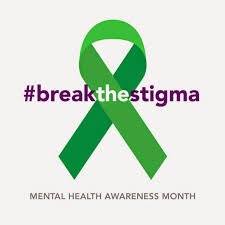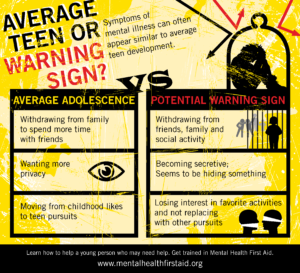With a few weeks remaining in the school year, before we reach Regents week and graduation rehearsals, we wanted to take some time to address mental health, and May’s designation as Mental Health Awareness Month, gives us that opportunity.
Mental illness is more common in our community than people would admit. The unfortunate stigma associated with mental illness lead people to believe that people with mental illness are weak, broken, or attention seekers. Add to that the cultural taboo about counseling, it becomes clear why people would avoid counseling. This stigma can cause embarrassment and lead to isolation.
We want to break the stigma associated with mental illness. Here are some statistics:
- Only 41% of adults in the U.S. with a mental health condition received mental health services in the past year. Among adults with a serious mental illness, 62.9% received mental health services in the past year.8
- Just over half (50.6%) of children aged 8-15 received mental health services in the previous year.12
- African Americans and Hispanic Americans used mental health services at about one-half the rate of Caucasian Americans in the past year and Asian Americans at about one-third the rate.13
- Half of all chronic mental illness begins by age 14; three-quarters by age 24. Despite effective treatment, there are long delays—sometimes decades—between the first appearance of symptoms and when people get help.14
- Over one-third (37%) of students with a mental health condition age 14–21 and older who are served by special education drop out—the highest dropout rate of any disability group.19
- Suicide is the 10th leading cause of death in the U.S.,20 the 3rd leading cause of death for people aged 10–2421 and the 2nd leading cause of death for people aged 15–24.22
- – See more at: https://www.nami.org/Learn-More/Mental-Health-By-the-Numbers#sthash.b2R0rT6t.dpuf
Teens have a lot on their plate, from their grades to SAT’s and Regent’s exams to college applications. Coupled with their relationships (family, friendships, dating, etc) and adolescent development, you can see how they might become overwhelmed, anxious, or depressed.
There are ways we can work together to break the stigma. We can advocate for counseling and support services. We can refrain from and/or challenge language that minimizes the seriousness of mental illness.
Let us take time to learn more about mental illness and support services.
In Truman, there are resources available, including RAPP. If you need support, or have questions about resources, let us know.
Outside of school, there is NYC Well, which offers support via Talk. Text. Chat. https://nycwell.cityofnewyork.us/en/






